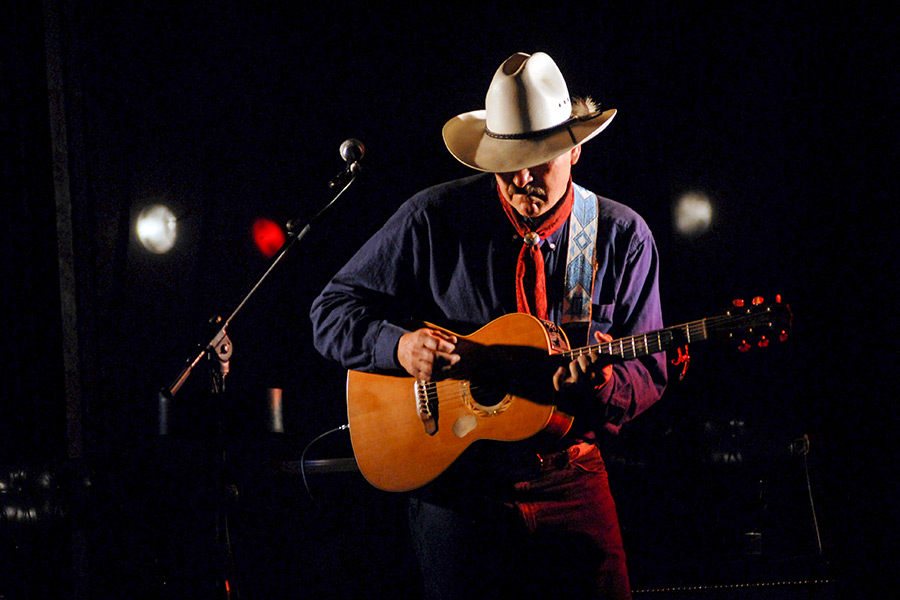One week into his campaign for Montana’s at-large seat in the U.S. House of Representatives, singer-songwriter Rob Quist caught a cold.
A career country and bluegrass musician accustomed to crisscrossing the nation on tour — as a founding member of the Mission Mountain Wood Band, he played up to 320 gigs a year — Quist with a cold is like a Stradivarius without strings, depriving him of a vital asset: his voice.
But having recently embarked on a new kind of tour, Quist brushed off the ailment as a hazard-of-the-job triviality, not an act-killing affliction. Soothing his scratchy throat with ice water at a recent campaign event in Polson, Quist was happy to be back home in the Flathead Valley and eager to spend a couple of days on his ranch near Creston, relaxing with his wife, Bonni, and white shepherd, Obi, before hitting the campaign trail again and getting back to work.
Competitive by nature — he led the Cut Bank Wolves to the 1966 Class B Boys state basketball title before playing college ball at the University of Montana — Quist is pursuing his foray into politics with the same energy he uses to animate concert halls and al fresco music festivals, and he’s not concerned about being sidelined by the sniffles.
Quist, a guitarist and banjo player, formed the Mission Mountain Wood Band in 1971 in Missoula with bassist Steve Riddle, a fellow member of the University of Montana’s audition-only Jubileers singing group. The band’s heyday ran from 1973 to 1981, when it traveled the country in a Greyhound Scenic Cruiser Bus and performed with the likes of The Grateful Dead, The Allman Brothers Band, Bonnie Raitt, and others.
The Mission Mountain Wood Band’s catalogue of country rock and bluegrass songs included hits charted on Billboard’s Top 100, and one of its earliest performances promoted the campaign of a young Max Baucus in his first race for U.S. House of Representatives.
Today, Quist is promoting his own House race, and he’s approaching it with the same gusto that characterized his touring days.
“We’ve got 75 days until the election,” he said. “This is going to be a sprint, and I’m ready for it.”
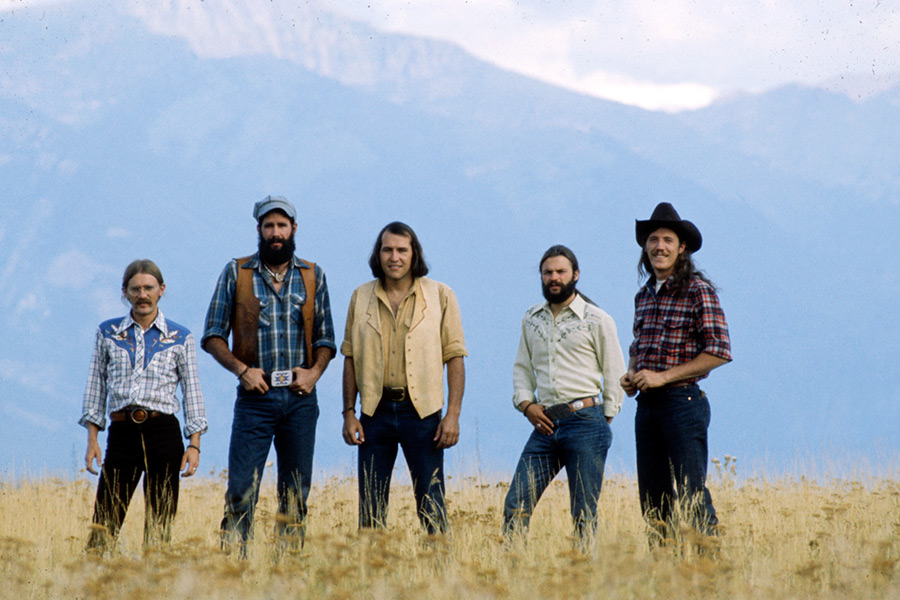
In reality, it’s been a sprint since Jan. 4 when, a day shy of his 69th birthday, Quist announced that he would seek the Democratic party’s nomination for the congressional seat being vacated by Ryan Zinke, the Whitefish Republican serving as the nation’s new Secretary of the Interior.
To launch his campaign, Quist hit the road in earnest, visiting more than 40 Montana counties to curry Democratic support while earning a strong endorsement from former Gov. Brian Schweitzer, the bombastic rancher who first met Quist in 2004 while running for governor as a political outsider, having lost his bid for the U.S. Senate in 2000.
At the time, Quist offered to perform at a few of Schweitzer’s campaign events, and while the former governor was a fan of his music, he was more struck by the singer-songwriter’s caliber as a devoted Montanan, and has high-listed Quist’s Washington-outsider status as a feather in his cowboy hat.
“Rob Quist cares deeply about this state and the people who live here,” Schweitzer said in an interview. “He is a man of conviction.”
When Quist was contemplating a congressional run, Schweitzer encouraged him to jump into the race, praising his ability to connect with voters of many stripes.
“It’s about time we have someone from outside of politics that can go to Washington, D.C., and not just tell the story of Montana, but stand up for Montana,” Schweitzer said. “Rob Quist has not spent the last 30 years preparing a run for Congress. He is a political outsider. Rob has told Montana’s story through song for 30 years and has been in every little and big town in Montana.”
Quist has seized on that message in hopes that it will appeal to a bipartisan bloc of voters who are disenchanted with the status quo of Washington politics, while offering voters a candidate who contrasts starkly with his Republican opponent, the wealthy high-tech entrepreneur Greg Gianforte, who had never run for elected office prior to last year’s unsuccessful bid for governor.
As political newcomers, both Quist and Gianforte have employed their outsider status to distinguish themselves even though their politics are poles apart.
“I come here not as a career politician rising through the ranks,” Quist told a crowd of 100 supporters gathered at the Vine and Tap in Polson on March 11. “Congress is made up of actors, athletes, bankers, firemen, teachers, and small businessmen. And as a poet musician, I ask you to look outside the bubble of Helena to a man who has represented Montana from behind a different kind of microphone.”
He accepted that new microphone on March 5, when Democrats picked him from a pool of eight candidates as the party’s nominee for Congress. Since then, he’s been racing to campaign events across the state, raising awareness about his candidacy as he seeks to elevate his name recognition, strike a chord with Montana voters and distinguish himself as being unafraid to represent and defend the state’s values.
Quist’s selection as the Democratic pick for Congress was seen by some as a sign that Democrats are attempting to enervate the GOP’s historic stronghold on Montana’s lone House seat by running an unorthodox candidate, particularly as it comes on the heels of President Donald Trump’s surprising victory. Democrats have lost the previous 11 House races to Republicans, and have not held the seat since Pat Williams left office in 1997. Often, the party attempts to cull median voters by running a candidate who hugs the middle in a state whose politics is often characterized as “purple” and defined by individualism.
This race is different, however, and is likely to be viewed by the entire country to determine whether the political winds have shifted, and as a measure of Trump’s eroded or continued support.
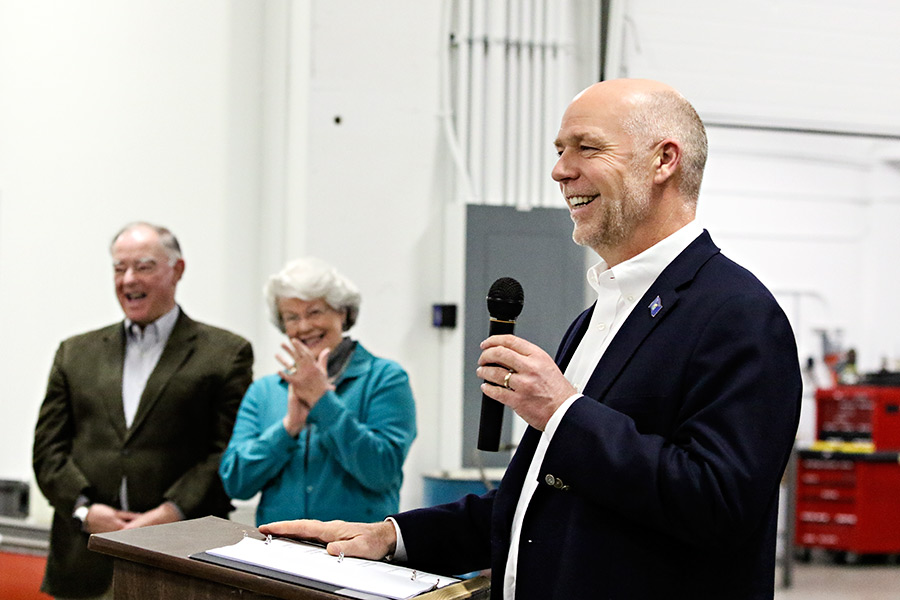
There are five House seats that need to be filled by special election in 2017, but Montana’s is the only at-large seat, and the Treasure State will be the first to trot out its candidates on May 25.
When Quist announced his bid for Zinke’s congressional seat, he became one of eight Democrats seeking the party’s nomination, including two top-level lawmakers with tested political clout — state Reps. Amanda Curtis, of Butte, and Kelly McCarthy, of Billings.
Both lawmakers have ample legislative experience, and Curtis has even run a statewide campaign, squaring off against U.S. Sen. Steve Daines in 2014 as a late substitution to replace Sen. John Walsh after he dropped out of the race.
But Quist defeated Curtis on a vote of 90-69 in the final round, while McCarthy was eliminated after the third round, offering insight into what Democrats envision as the most successful mold for electability in a candidate.
Rob Saldin, a political science professor at the University of Montana, said both parties made deliberate political calculations in selecting their candidates, with Republicans easily settling on Gianforte, who in November lost the governor’s race to incumbent Steve Bullock.
State Sen. Ed Buttrey, a moderate Republican who ran unsuccessfully as the Republican nominee, attempted to undermine Gianforte’s support by painting him as too conservative to appeal to all Montana voters, while Gianforte and his supporters have repeatedly characterized Quist as being “too liberal.”
Throughout the gubernatorial campaign, Democrats had some success in portraying Gianforte as being out of touch with Montana values, a well-worn playbook the party is already implementing in the race for the special election.
“The Democrats certainly anticipated that they were going to be running against Greg Gianforte, and one of the main lines of attack is that he isn’t a real Montanan,” Saldin said. “Well, Rob Quist is like the perfect embodiment of what people might think of, rightly or wrongly, as your quintessential Montanan. So that could have been appealing for Democrats as they weighed their options and thought about style and substance.”
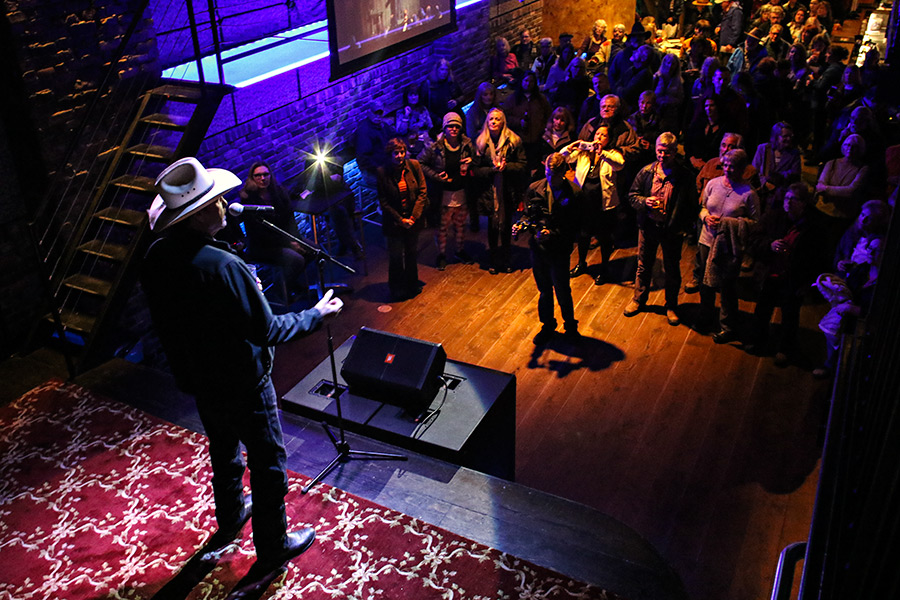
At 69, Quist is tall and mustachioed and reliably shod in cowboy boots. He addresses his supporters at campaign events from beneath a ten-gallon hat and is at ease in front of a crowd regardless of whether he’s strumming a guitar or stumping on the campaign trail.
During his first week of campaign appearances, Quist highlighted a range of issues that are important to him, from the preservation of public lands to refinancing college tuition loans.
He has pledged to protect Social Security and Medicare, develop new energy technologies, streamline and simplify the tax code so it applies to everyone, provide higher pay for teachers, support labor and unions, and help farmers and ranchers obtain higher prices for their products.
He supports immigration and diversity, has sworn off donations from special interest groups, and is hopeful that he can help grow the middle class if elected.
Quist also served on the Montana Arts Council for 11 years and on the Board of the Crown of the Continent Guitar Foundation of America for six years. He worked with the Montana Department of Commerce as an ambassador to Montana’s sister state in Kumamoto, Japan; served as spokesman and advocate for the Montana Food Bank; and recently received a grant from the Office of Public Instruction to develop anti-bullying programs and a “Native Oral Traditions” program to enhance the arts in Montana’s public school systems and promote understanding of Native Peoples.
Describing himself as being in step with Montanans of all political and demographic walks, Quist has also been unapologetically liberal, having openly supported Bernie Sanders during the 2016 Democratic presidential primary.
Quist grew up on a ranch and wheat farm outside of Cut Bank, and said his recent travels to eastern Montana have reaffirmed his belief that he connects with all Montanans, and that he is well-suited to represent the state as a whole.
U.S. Sen. Jon Tester, a Democrat who has succeeded in a mostly red state and twice defeated Republican challengers for one of Montana’s two U.S. Senate seats, described Quist as a “real Montanan” and a “solid” candidate who has traveled the state for much of his lifetime and boasts good name recognition among residents. Tester said Republicans are trying to define Quist as “something he’s not.”
“This guy comes from a rural community. He’s a hard worker. He’s got grit,” Tester told reporters in a recent weekly conference call with statewide media outlets.
Tester said the key to this unique Congressional race will come down to which candidate genuinely connects with Montana residents.
“I think the key to this race is not going to be money. (Quist) will get outspent two, three, four times to one,” Tester said. “I don’t think Montanans can be bought. This seat will be won by elbow grease and letting people know who you are and what you stand for.”
But Republicans immediately began attacking Quist as a Bernie Sanders liberal, while panning his progressive views and support for a single-payer, universal health care system. In particular, GOP attack ads have ridiculed Quist’s suggestion that he would support a gun registration for certain automatic weapons and his support for so-called “sanctuary cities,” views that Quist says were taken out of context and misconstrued.
Saldin, who attended the nominating conventions for both parties, said as a political outsider Quist hasn’t spent his entire career guarding his message, which could both help and hurt him as a candidate. He also doesn’t have a record that critics can pick apart.
“This guy hasn’t gone through his entire life being careful about what he says and considering the political repercussions,” Saldin said. “That could be an appealing quality for Quist. He does seem to have a very progressive outlook on things consistent with the Bernie Sanders wing of the party, but he also has the kind of style and aesthetic that might be effective at reaching independent voters and even conservative voters who otherwise might not give a Democratic nominee much time or consideration.”
But Saldin also noted Trump’s popularity in Montana, a state that the president won in November by more than 20 percentage points. Gianforte has tethered himself to the Trump administration, a departure from his relative silence on whether he supported Trump leading up to the election.
“The Republican Party is on the move and we are going to bring our conservative values to return liberty and freedom back to Montanans in this country — and we will make America great again,” he told supporters after the nominating convention.
“We don’t need to send Nancy Pelosi a court musician who’s advocating for a socialized, one-payer medical system,” he added, referring to the House minority leader.
Saldin said that while the special election will serve as a kind of gauge to extrapolate the degree to which the Trump administration is dipping in popularity, Gianforte’s statement that it will “be a referendum on Donald Trump and this administration” makes it clear that he believes Montanans continue to support the president.
“What is clear beyond any doubt is that Greg Gianforte believes that attaching himself to Trump is a good political move in the context of this campaign,” Saldin said. “That is crystal clear, and it is a real shift for him.”
Quist said when he began weighing his decision to run for elected office with his family, he made a list of pros and cons. At the top of the “cons” column, Quist jotted “attacks on my family,” thinking of the public pressure and scrutiny that his wife and two children, Halladay and Guthtrie, would face.
“I realize that Republicans would be attacking anyone standing in my place, so I’m not taking it personally, but I do worry about the effect it has on my loving family,” he said.
On the plus side, Quist turned to a quote by Ernest Hemingway.
“Hemingway said that our lives are measured by the magnitude of the challenges we accept, and I knew that there could be no greater challenge than this one,” Quist said. “But I knew it was one that I had to accept, given my love for Montana. It wasn’t an easy decision, either, because I love my life as a performing artist. And for me to do a wide U-turn and head into this thing took me three days of doing some real soul-searching. I couldn’t be more confident in my decision.”
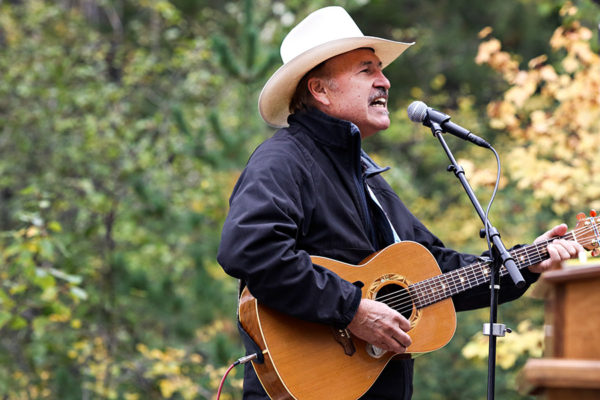
Bonni Quist said her husband’s decision to run didn’t come as a surprise, nor did the degree to which he tackled the challenge.
“I have never seen him work so hard at anything,” she said. “He takes it very serious that he is running for all Montanans. He is not running for just a party; he is running for the entire state. He thinks that Montanans have a lot of things in common, and that is what he wants to stress.”
When longtime friend and musician Terri Hill learned that Quist was running for Congress, he was surprised. But having known Quist since 1975, he immediately came around to embrace the idea.
“That was my initial reaction. Who wouldn’t be surprised? It was so out of the blue,” Hill said. “But within two seconds, I was thinking, ‘This is perfect.’ He is the perfect person to represent Montana. He is smart, well-read, well-spoken. When you talk to him about complicated issues, he is downright erudite. I mean, nobody is more Montana than this guy.”
In 1993, Hill and fellow musician Steve Sellars had a gig playing five nights a week on Big Mountain, at what was then Moose’s. After the show on their way down the mountain, a drunken driver hit Hill head-on, shattering his hip in 100 places and disfiguring his nose.
“It was an ugly accident,” Hill said. “I was laid up in a hospital bed in my living room for three months, and it was a year before I could walk without a cane.”
Facing astronomical medical bills, Hill, then 46, didn’t know what to do.
“Rob helped put on a big benefit concert at the Outlaw Inn and headlined the show,” Hill said. “He was famous and something like 4,000 people showed up.”
At the time, Quist was struggling with his own health issues, and had recently undergone gall bladder surgery.
“The day of the benefit, he was feeling so weak that he got a room in the hotel and just laid in bed until it was time to go on stage,” Hill said. “When it was time, he got out of bed and came down and played my benefit. That right there, that is Rob Quist. He is absolutely the most generous person I have known.”
When Quist was conducting his soul-searching before announcing his bid for Congress, he said he spoke with a number of Democrats and Republicans who were reeling from an election fraught with negativity.
“After the election, a lot of people wanted to disconnect. But for me it became clear that this is the time to stand up and make our voices heard,” Quist said. “This is a critically important time, and I realized that I wanted to be a part of this. I love this state as much as anyone, and that is why I am in this race — because I care about this state so much, and I want to be a strong independent voice for all Montanans.”
